In this issue
n Grocer deal
An advisor continues to tout the benefits of a deal that would combine the Kroger and Albertsons chains.
n Beetle battle
Mesa County has received a $110,000 grant to fund efforts to eradicate an infestation of Japanese beetles.
2 5 6
An upcoming meeting in Grand Junction will offer agricultural producers a chance to discuss their concerns.
n Best economies
THE BUSINESS TIMES Business People
Colorado ranks sixth in a comparison of the best and worst state economies, according to a finance website.
n Taxing matters
Sales tax collections, a measure of retail activity, continue to trend upward on a year-over-year basis.
n Financial stress
Employers


THE DEFINITIVE SOURCE FOR GRAND JUNCTION BUSINESS NEWS SINCE 1994 JUNE 20-JULY 10, 2024 VOLUME 31, ISSUE 12
play a vital role in reducing financial
their employees
in turn benefiting business. Almanac 26 Business Briefs 24 Business People 26 Contributors 17-21 News 2-14 Opinion 22 Trends 15-16 PRSRT STD U.S. POSTAGE PAID PERMIT NO. 67 The Business Times 609 North Ave., Suite 5 Grand Junction, CO 81501 17 15 n Ag concerns n Departments 8 Business
He’s selling lifestyle n Real estate firm expanding its operation. Page 2 Omar Richardson is the broker and owner of United Country Real Colorado Properties. The firm has grown from one office in Grand Junction to five offices on the West Slope.
stress in
and
Times photos by Phil Castle
Advisor touts the benefits of proposed grocer deal
Phil Castle
The Business Times
A proposed acquisition that would combine Kroger and Albertsons constitutes a response to an increasingly competitive marketplace that also would result in lower prices for consumers and higher wages for employees, according to an industry consultant hired to advise on the deal.
What’s more, C&S Wholesale Grocers
Business People
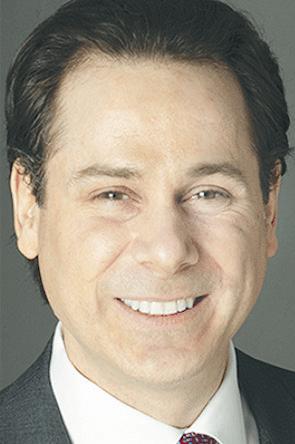
offers a strong buyer of 579 stores that would be sold under the new terms of a divestiture plan, said Scott Moses, a partner and head of the grocery, pharmacy and restaurants advisory group with Solomon Partners based in New York.
Moses discussed the merger during a Zoom media call with Colorado reporters.
Kroger announced in 2022 the proposed acquisition of Albertsons in a $24.6 billion deal that would combine the two largest supermarket chains into a 4,500-store operation.
In February, the U.S. Federal Trade Commission sued to block the merger, claiming a lack of competition would lead to higher grocery prices and lower wages for workers. The FTC also said the initial plan to divest 413 stores to C&S was inadequate.
Moses said the merger is necessary for traditional supermarket grocers like Kroger and Albertsons to compete with nontraditional groceries that include mass merchants, warehouse clubs and a proliferation of discount stores.
While 10 of the top 15 U.S. grocers were supermarket grocers 20 years ago, they’re only five of the top 15 today, he said. Kroger ranked second in 2023 in terms of sales behind Walmart. Albertsons ranked fourth behind third-place Costco.
Walmart has three times more annual sales than Kroger and five times more than Albertsons, he said. Walmart has two times more sales than Kroger and Albertsons combined.
Dollar General and Dollar Tree Family Dollar have grown from a total of 12,992 stores in 2003 to 36,796 stores in 2023.
In Colorado, the combined share of the grocery store market for Kroger and Albertsons decreased from 51 percent in 2012 to 37 percent in 2022. Walmart and Sam’s Club commanded a 32 percent share, while Costco had a 10 percent share. See GROCER page 12

Omar Richardson is broker and owner of United Country Real Colorado Properties based in Grand Junction. The firm is expanding operations from one office to five offices serving a total of six counties in western Colorado.
Selling lifestyle
West
Slope real
estate firm expanding from one office to five offices
United Country Real Colorado Properties handles a variety of listings — everything from farms and ranches to luxury homes and hunting acreages.
But in many cases, the Grand Junction-based firm is involved in something else, says broker and owner Omar Richardson.
“We sell lifestyle,” Richardson says. “We live the lifestyle and sell the lifestyle.”
Whether clients are looking for a ranch, a home or perhaps a commercial property on which to operate a business, the firm can help them find what they want, Richardson says. “We help people do what they want to do.”
What people increasingly want to do, he says, is move away from large cities to live and work in rural areas that offer the kind of quality of life found in western Colorado with its scenic landscapes and outdoor recreation.
The firm combines what Richardson says is local expertise with the national exposure of United Country Real Estate and a network of nearly 500 offices and a total of 4,000 real estate professionals.
United Country also offers property websites, digital and social media advertising, an internal real estate advertising agency and a database of more than 1 million buyers, he says.
United Country offers expertise in search engine optimization that keeps listed properties on the first page of Google searches, Richardson says.
By one estimate, more than 90 percent of real estate searches begin on the internet.
The combination of local and national efforts has made United Country Real Colorado Properties one of the best-selling offices in the United Country franchise not only in Colorado, but also nationwide.
And that operation expanded from what was a single office in Grand Junction to additional locations in Craig and Rifle and, soon, offices in Delta and Montrose. A total of 32
FOR YOUR INFORMATION
United Country Real Colorado Properties operates an office in Grand Junction at 428 Main St. For additional information, call (970) 256-9700 or visit www.realcoloradoproperties.com.
agents work with the firm, and Richardson said he hopes to recruit more.
A real estate market slowed by higher interest rates on mortgages affords a good opportunity to capture market share, he says. That geographic market includes Grand Junction and what’s the largest city between Denver and Salt Lake City as well as six Western Slope counties.
Richardson and his son, Nate, serve as partners in the firm they purchased a decade ago from Dave Woodward and Craig Ginter. Woodward still works with the firm.
Omar Richardson comes from a family of real estate agents that worked in the Salida and Canon City areas.
“We just grew up talking real estate,” he says.
After earning two degrees from what’s now Western Colorado University in Gunnison, Omar Richardson initially worked for a business office systems firm in Grand Junction and Durango. But he later earned his real estate license and taught real estate courses.
He operated a real estate firm in Durango and later operated another firm in Florida before returning to Colorado and acquiring a United Country franchise for the Salida area. Richardson and his wife relocated again to Grand Junction.
After purchasing the United Country office in Grand Junction, Richardson subsequently took over offices in Craig and Rifle. In January, franchises in Delta and Montrose were acquired. New locations for those offices soon will open.
See LIFESTYLE page 14
THE BUSINESS TIMES News
Page 2 The Business Times June 20-July 10, 2024
Scott Moses
STORY AND PHOTO BY PHIL CASTLE
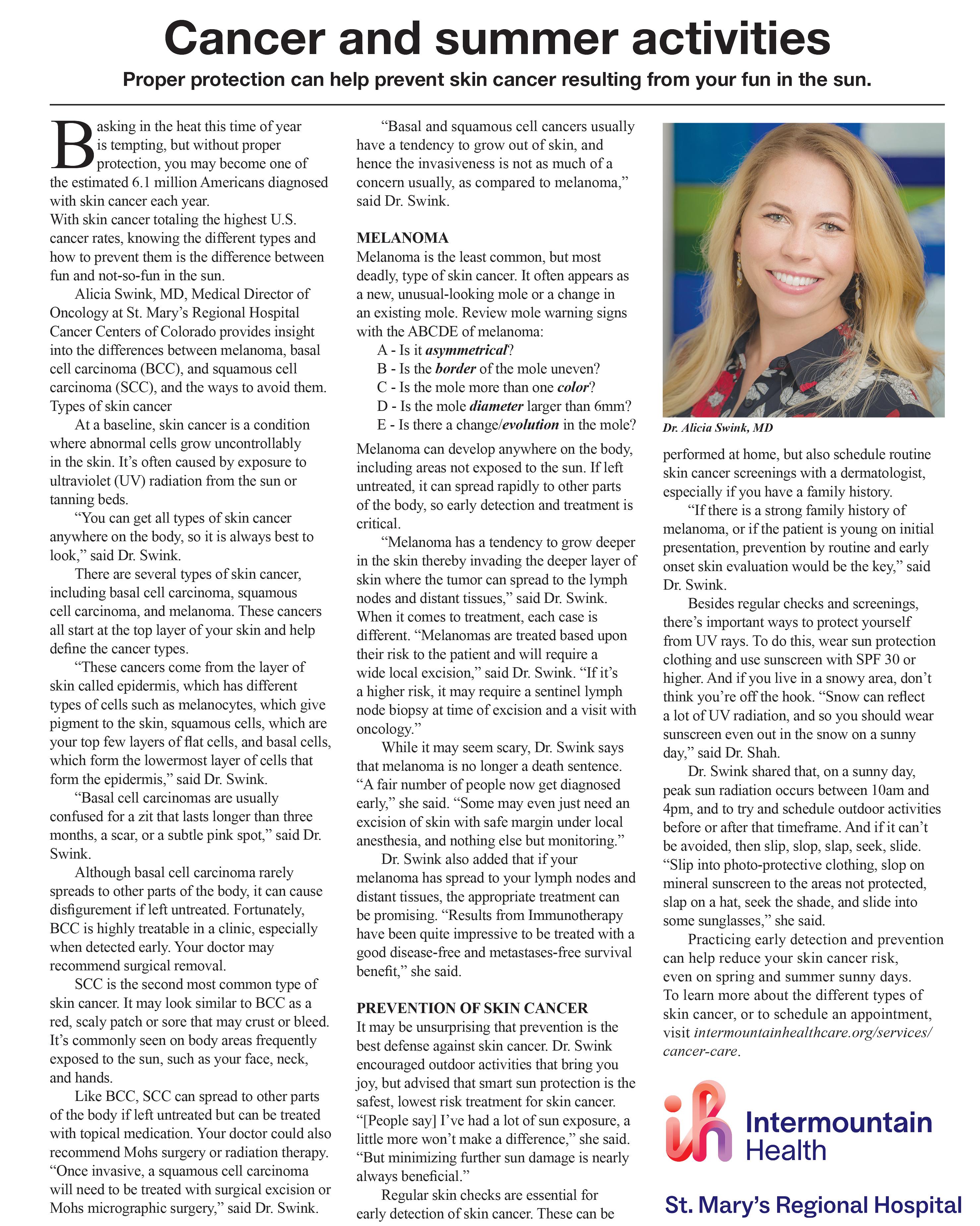
June 20-July 10, 2024 The Business Times Page 3


The Business Times
609 North Ave., Suite 5 Grand Junction, CO 81501 (970) 424-5133
www.thebusinesstimes.com
The Business Times is published twice monthly and distributed throughout Grand Junction, Fruita and Palisade. Advertising rates and deadlines are available upon request. Opinions expressed in this publication are those of the writers and don’t necessarily reflect the views of the publisher, editor or advertisers. Copyright © 2024 — All rights reserved



Grand Junction firm turns its pet projects into thriving venture
By focusing on pet resorts and vet practices, PET|VET brings its total sales to $466 million
Long before she founded a brokerage and advisory firm for the pet care industry, Teija Heikkilä operated her own pet care facilities for 18 years.
Her first-hand knowledge of the challenges and rewards of operating a pet care business led to the realization there was a gap in the market for brokerage services for the pet care sector.
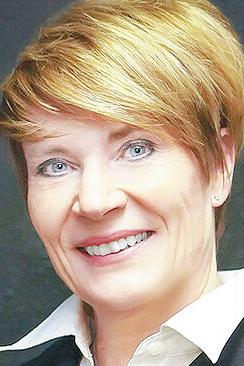
“Unlike the veterinary space, the pet care industry lacked specialty brokers, leaving sellers to rely on generic brokers or, even worse, residential real estate agents. This realization motivated me to obtain the proper licensing and education to continue serving the industry I was so passionate about,” said Heikkilä, founder, chief executive officer and principal broker of PET|VET M&A, Sales & Advisory.
Based in Grand Junction, PET|VET focuses on the selling and advising of pet resorts and veterinary practices. Over the years, PET|VET adapted to market conditions and now facilitates transactions primarily with private equity firms active in the pet care space. PET|VET has delivered a 96 percent closing rate on its deals, securing a 20 percent higher transaction value than those managed by generic brokers and for sale by owner deals.
Following an unprecedented year with more than $70 million in client business sales, PET|VET has maintained that momentum this year in increasing its total transactions to more than 200 with a combined sales volume exceeding $466 million.
PET|VET recently completed a threeasset sale in Savannah, Ga., with buyer group Best Friends Pet Care. The deal included Barks Dog Daycare and two locations of Hipster Hound.
“Building upon the momentum of an exceptional year in 2023, where PET|VET shattered records and surpassed existing multipliers, we extend our heartfelt gratitude to all our clients for their continued trust in us with the most important financial decision of their lives,” Heikkilä said.
Heikkilä is a licensed real estate broker in more than 20 states and holds designations as both a Certified Merger & Acquisition Professional (CM&AP) and Merger & Acquisition Master Intermediary.
In addition to Heikkilä, the PET|VET team includes Katrina Stein, transaction manager, and Katy Buckaloo, M&A transaction coordinator. Stein also holds CM&AP certification and handles business valuation, financial analysis and managing
FOR YOUR INFORMATION
For more information about PET|VET M&A, Sales & Advisory, visit www.petvetsales.com or call (970) 609-9220.
transactions to closings. Buckaloo handles due diligence, issue resolution and research. Four assistants support the team.
Clients praised the firm’s expertise and guidance throughout the sales process.
“Working with Teija and her team at PET|VET was the best experience I have ever had with consultants,” said Stephen Quisenberry, owner of Wagbnb in Texas. “They found the absolute best buyer for my business and orchestrated the entire process with constant communication, attention to detail and ease. I would never recommend attempting this process without them.”
Nick and Tonya Rintye, owners of the Hipster Hound, said, “Thankfully, Teija and her team walked us through everything and answered all of our questions. With that information and what we know about our business, we were able to identify an accurate range of the value of what we built.”
Grant and Marci Garl, owners of Fit N Furry in Petaluma, Calif., said, “Teija and her ace team, Katy and Katrina, helped us create a business portfolio of financial metrics, business operations description, staff profiles and photos to take our business to market. Within weeks, we had numerous offers, all beyond our expectations.”
The global pet care market is projected to grow to nearly $369 billion by 2030, exhibiting a compound annual growth rate of 5.92 percent during the forecast period, according to a recent report by Fortune Business Insights
Heikkilä said she’s confident about the potential for growth for 2024 and beyond.
“As the pet care industry is attracting a growing influx of private equity firms, we anticipate sustained sales growth throughout the remainder of the year. For any business owner in the pet industry contemplating an exit in 2024 or 2025, we strongly encourage initiating that dialogue now by reaching out to us for a confidential consultation.”
PET|VET M&A, Sales & Advisory is also starting to reap the benefits from a targeted marketing mailer campaign to highlight client successes and services it offers companies in the pet care industry.
“Overall, it has been a positive experience. We have received contacts from multiple assets that we have been able to move forward with listing,” Heikkilä said.
Page 4 The Business Times June 20-July 10, 2024
F
Teija Heikkilä
Ag department funding to assist Mesa County in waging beetle battle
Mesa County has received a $110,000 grant to help fund efforts to eradicate the Japanese beetle.
The Colorado Department of Agriculture (CDA) awarded the grant to battle the beetles, an invasive pest that damages agricultural crops as well as ornamental plants and turf grass.
“CDA is committed to protecting the Western Slope from this voracious pest that feeds on both agricultural and decorative plants,” said Wondirad Gebru, director of the department’s plant industry division. “Based on our previous experience of eradicating the Japanese beetle, its complete eradication will take from five to six years, But we should start seeing a dramatic decline in beetles in the second and third year of the treatment, hopefully this year and next.”
Mesa County Commissioner Bobbie Daniel said she was grateful for the grant. “These funds will go a long way to strengthen our initiatives to eliminate as many Japanese beetles as possible, preventing further spread throughout the county. The grant will partially fund our 2024 spray program in the hot zone, where we are currently treating approximately 1,300 properties.”
Japanese beetles were discovered in Grand Junction in the summer of 2022. The beetles feed on more than 300 species of plants, many of which are essential to western Colorado’s agricultural economy — including peaches, grapes and sweet corn — as well as many other ornamental plants in urban spaces, including turf grass. The presence of the beetle also affects exports of plants out of Mesa County to areas without Japanese beetles — including New Mexico — that have denied the exports.


Beetles likely were brought in by a sod farm from the Front Range that violated the Japanese beetle quarantine. Mesa County Commissioner declared in March 2023 the beetle to be a public nuisance pest requiring eradication.
Since 2022, CDA has worked with Mesa County Noxious Weed and Pest Management, the City of Grand Junction and Colorado State University Tri-River Extension to set up traps that monitor the presence of the pest across the affected area. The partnership has also extended to working on eradicating the pest for the past two years.
CDA funding will support eradication efforts by covering the cost for the personnel, materials and monitoring of the traps.
The Western Slope successfully staved off the beetle in the past. In 2002, a master gardener discovered the pest in the Grand Valley. The Upper Grand Valley Pest Control District eradicated the pest and reduced its population by 99 percent over five years.
The Pest Control Act gives CDA the authority to establish an intrastate quarantine to restrict the movement of nursery materials and pests to the Western Slope to protect the fruit and wine industry. A quarantine is in place that prevents the import of commodities that carry the pest from affected states and quarantined counties — including those on the Front Range — to areas not under quarantine. That includes Mesa County.



June 20-July 10, 2024 The Business Times Page 5
F
Wondirad Gebru
Bobbie Daniel
United Way receives grant to address homelessness
United Way of Mesa has received a $50,000 grant to help fund efforts to address homelessness.
The Wells Fargo Foundation grant will support the United to Solve Homelessness program, as well as the Resource Center a joint project with HomewardBound of the Grand Valley.

Keira Auld, community impact and marketing manager with United Way of Mesa County, said the United to Solve Homelessness program is an effort of a coalition of local nonprofits, local government and industry experts to address homelessness through education and advocacy. A community education workshop covers such topics as the causes of homelessness and local statistics. A poverty
FOR YOUR INFORMATION
For more information about the United Way of Mesa County United to Solve Homelessness program and other initiatives, call (970) 243-5364. or visit www.unitedwaymesacounty.org.
immersion experience simulates the challenges low-income families face.
“We believe education and information are vital for beneficial community discussions and planning. With the United to Solve Homelessness program, we have worked with industry experts to create new ways for our community to have conversations and inspire solutions,” Auld said. “Through the generosity and support of the
Wells Fargo Foundation, we will be able to continue to build these efforts.”
Opened in January, the Resource Center offers a space for people to escape the elements, rest in a safe place, use restrooms and showers, store belongings, share a meal and meet with service providers and resource navigators who can help meet needs and assist with moving into more stable housing. To date, the center has received 15,000 check-ins and worked with partners to provide thousands of meals.
“The Resource Center is a vital step to helping those that are currently unhoused or struggling to find stability,” Auld said. “Support from the Wells Fargo Foundation enables us to enhance these services and reach more individuals in need.”

Meeting planned to identify and discuss area ag concerns
A meeting is scheduled for Grand Junction to identify concerns and common needs for agricultural producers in Western Colorado.

Jamie VanWinkle, a fellow with the AgriWest initiative, will lead the discussion at the meeting set for 5:30 to 8:30 p.m. June 27 at the Mesa County Fairgrounds community building, 2785 U.S. Highway 50. The Ribber will provide a brisket dinner.
Participants can register to attend by visiting the website at https://tinyurl.com/ AgriWestcouncil.
Agricultural producers involved in operations of all sizes, commodities and production methods are encouraged to attend to join in a discussion intended to promote connectivity, job creation and retention and community engagement.
“No matter if you’re a boutique lavender farmer, a mid-size grower or a commercial rancher, we want all voices at the table as we kick off this initiative to begin solving for the long-term needs of our industry,” VanWinkle said. “Success will look like honest conversations with all voices in our industry to create a roadmap for a sustainable future for our region as we tackle water scarcity, increased food and production costs and the benefits and challenges present with workforce, transportation, production, tourism, technology and changes to the industry.”
The Business Incubator Center in Grand Junction launched the AgriWest initiative with a federal grant from the Economic Recovery Corps. AgriWest was among 65 initiatives selected for funding out of more than 500 applicants. The goal is to gather stakeholders in the agriculture sector to identify and address problems that could affect the industry.
VanWinkle, a Grand Valley rancher and beef producer, serves as a fellow and provides planning and technical assistance.
Page 6 The Business Times June 20-July 10, 2024
F
Keira Auld
F
Janie VanWinkle

J 20-J 10, 2024 T B T P 7
Colorado sixth in analysis of state economies
Colorado ranked sixth in a comparison of the best and worse state economies.
Colorado ranked among the top 20 states for economic activity, economic health and potential for innovation.

WalletHub compiled the ranking based on 28 indicators of economic performance and strength, including growth in gross domestic product, business startup activity, share of jobs in high-tech sectors and unemployment rates.
“A strong state economy doesn’t guarantee success for the state’s residents, but it certainly makes financial success more attainable,” said Cassandra Happe, an analyst with
WalletHub, a personal finance website.
“Factors like a low unemployment rate and high average income help residents purchase property, pay down debt and save for the future,” Happe said. “The best state economies also encourage growth by being friendly to new businesses and investing in new technology that will help the state deal with future challenges and become more efficient.”
Colorado ranked sixth overall in the analysis with a score of 58.89 out of a possible 100. The state ranked sixth for potential for innovation, ninth for economic activity and 13th for economic health.
Colorado ranked fifth for annual median household income and business startup activity, seventh for the proportion of jobs in high-tech industries, 11th for change in nonfarm payrolls, 17th for change in gross domestic
product and 24th for unemployment rate.
Washington ranked first in the comparison with a score of 71.1. The state ranked first for economic activity and second for potential for innovation. Washington has the second-highest share of jobs in high-tech industries and the second-highest share of science, technology, engineering and math professionals.
Utah ranked second overall and first for economic health. Massachusetts came in third, followed by Texas and California. Florida, North Carolina, the District of Columbia and Arizona also made the top 10.
Mississippi finished last in the analysis, followed by Hawaii, West Virginia, Arkansas and Louisiana. Kentucky, Rhode Island, Iowa, Maine and Ohio rounded out the bottom 10.

Colorado Lottery reaches fiscal year GOCO funding cap
The Colorado Lottery has generated enough revenue for the 2024 fiscal year to meet the funding cap for Great Outdoors Colorado (GOCO).
That means nearly $82 million in lottery proceeds will fund conservation, open space, parks and recreation projects across the state. Still more funding will be distributed to other programs
High national jackpots in May, including two Mega Millions and Powerball jackpots that each reached more than $1 billion dollars, bolstered lottery sales.
“Growing revenue responsibly to support outdoor recreation, conservation and schools is why the Colorado Lottery exists today,” said Tom Seaver, director of the Colorado Lottery. “This March, the GOCO board awarded over $117 million in grants that benefited the outdoors in Colorado, marking the largest funding cycle ever. This is just a fraction of the millions that GOCO invests annually in conservation, restoration, stewardship and wildlife projects. This is one more reason why Colorado stands out as the greatest state in the country.”
Hitting the GOCO cap enables the Colorado Lottery to extend more support to other programs funded by lottery revenue. The Colorado Lottery is projected to return the following amounts of revenue to these key programs:
n $78.5 million to the Conservation Trust Fund.
n $19.5 million in director support to Colorado Parks and Wildlife with an additional $4 million allocated to both the wildlife and parks and outdoor recreation cash funds.
n $8.1 million to the Building Excellent Schools Today program.
n $2.25 million for the Outdoor Equity Program Fund, a set amount established by the Colorado Legislature.
The GOCO cap was originally set at $35 million and has gone up each year based on the Consumer Price Index for the Denver metropolitan area. Next fiscal year, the GOCO cap will top $86 million, a 5.2 percent increase.
Page 8 The Business Times June 20-July 10, 2024
F
Cassandra Happe
F


June 20-July 10, 2024 The Business Times Page 9

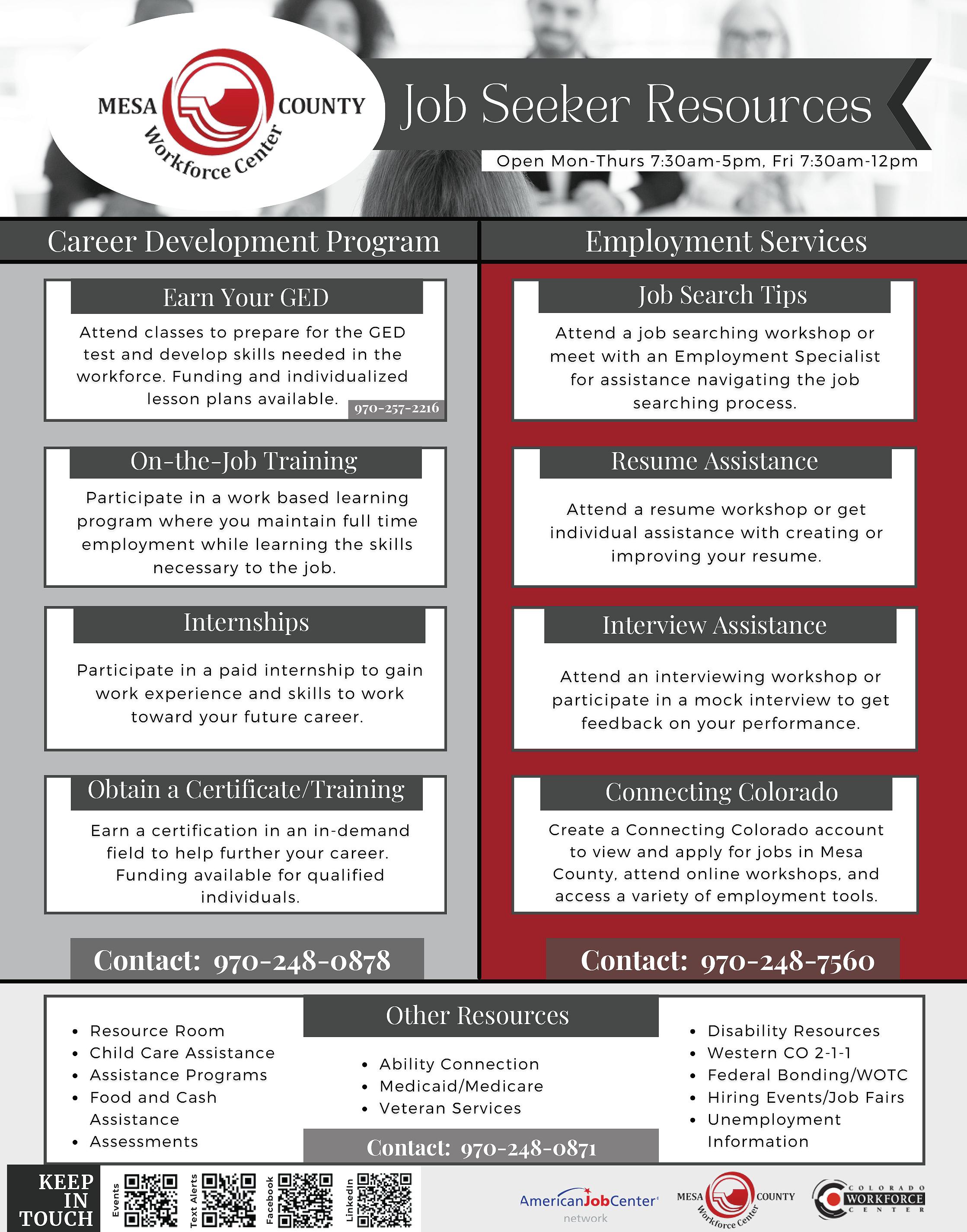
Firm honors accountant by offering scholarship
A Grand Junction-based accounting firm will honor a retiring accountant by establishing a college scholarship in her name.
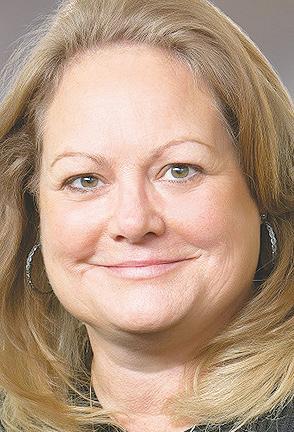
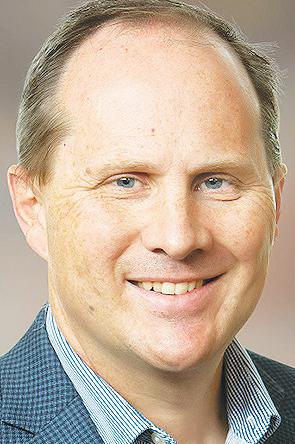
DWC CPAs and Advisors will offer the Donna M. Hardy accounting scholarship at Colorado Mesa University for the 2024-2025 academic year.
Hardy, a certified public accountant and certified valuation analyst, retired after working four decades in public accounting.
“Donna taught me and many others in our firm how to be an exceptional accountant,” said Chris West, chief executive officer of DWC. “She is always supportive and encouraging to her team. It’s only fitting that we honor Donna’s retirement wishes by giving a gift in her name to support the next generation of public accountants.”
Hardy’s career began after she completed a vocational program in accounting and business administration and joined what was at that time Dalby, Wendland & Co. She left the firm to pursue a bachelor’s degree in accounting from CMU and returned to DWC in 1990.
She became a shareholder of the firm in 2001, a tax principal in 2005 and served on the firm’s board of directors.
She provided tax planning, compliance and consulting services to clients in various industries, including agriculture, construction and health care.
Hardy also was involved in local nonprofit and community groups. She served on the executive committee and board of directors of the Grand Junction Area Chamber of Commerce and was secretary and treasurer of the Redlands Ditch Co. She also served as treasurer for numerous nonprofit organizations, including the Grant a Wish program, Performing Art Conservatory and Western Slope Center for Children.
DWC CPAs and Advisors operates the largest public accounting firm headquartered in Western Colorado with main offices in Grand Junction, Glenwood Springs and Montrose. The firm offers a range of services including accounting, auditing, business consulting, tax planning and wealth management. For more information about DWC CPAs and Advisors, call (970) 243-1921 or visit the website located at https://dwcadvisors.com.
Page 10 The Business Times June 20-July 10, 2024 News, views and advice you can use Subscribe today to the journal that means business in the Grand Valley. (970) 424-5133 www.thebusinesstimes.com
F
Donna Hardy
Chris West



June 20-July 10, 2024 The Business Times Page 11
District out to fight the bite
The Grand River Mosquito Control District joins in National Mosquito Control Awareness Week to educate people about the dangers of mosquitoes and the importance of mosquito control.
“This time of year is critical for people to be extra aware. We all tend to spend more time outdoors camping, barbecuing and recreating. Mosquitoes will take every opportunity they can to leave their mark,” said Tim Moore, manager of the Grand River Mosquito Control District.

According to the World Health Organization, more than 7,300 people died from mosquitorelated viral diseases in 2023.
The Grand River Mosquito Control District handles mosquito surveillance and inspections as well as implements control measures to reduce the spread of mosquito-transmitted
diseases. The district treats more than 2,500 private properties and 10,000 breeding sites as well as public open spaces in the Grand Valley.
Mosquitoes are not just a nuisance, they spread dangerous diseases, including West Nile virus, that affect humans as well as animals.
Standing water, bare skin and dark clothing attract mosquitoes. When it comes to fighting the bite, it’s important to remember the 3 D’s: drain, dress and defend.
Mosquitoes can breed in small amounts of water. Dispose of items that collect water. Get rid of old tires, drill holes in the bottom of recycling containers, clear roof gutters of debris and change the water in bird baths at least once a week.
Those who must be outside when mosquitoes are active, should wear loose-fitting, light-colored clothing.
It’s also important to apply a mosquito repellent to bare skin and clothing. Repellents with 10 percent to 30 percent DEET, picaridin, oil of lemon eucalyptus and IR3535 are effective.
Libraries foundation plans 30th anniversary celebration
The Mesa County Libraries Foundation plans a fund-raising celebration of its 30th anniversary.
The Sippin’ in the Stacks event is set for 2 to 5 p.m. June 23 at the central library at 443 N. Sixth St. in Grand Junction. Tickets sell for $25 in advance and $30 at the door. For reservations or more information, call (970) 683-2438 or visit https://mesacountylibraries.org. The event is open only to thosea at least 21 years old. Proof of age will be required at the door.
“We are thrilled to celebrate 20 years in our amazing community, which embodies the spirit of support for our library,” said Ami Schiffbauer, director of the Mesa County Library Foundation. “Your contributions and support not only helps us maintain and expand our programs and services, but also ensure that we can continue to inspire and empower individuals of all ages in the year ahead.”
The event will feature charcuterie from the Hog and the Hen and beverages served by Fisher’s Liquor. The event also will include crafts, games and tours of the library.
The event will conclude with a staged reading of the comedic mystery “Murder by the Book” sponsored by Louise Penny and produced by special arrangement with the Playwrights Guild of Canada.


Grocer
Continued from page 2
Moses countered the FTC claims the merger of Kroger and Albertsons would lead to higher grocery prices and lower wages. He said Kroger remains committed to offering lower prices and higher wages as well as no store closures or job losses.
Kroger plans to invest $500 million to lower prices following the merger, adding to $3 billion invested to lower prices since 2003, he said.
Kroger also is commtted to investing $1 billion to raise wages and benefits, adding to the $2.4 billion invested to improve wages and benefits since 2018.
The merger also offers a way to secure union jobs, Moses said.
Under the initial divestiture plan, Kroger and Albertsons planned to sell 413 stores in markets where they overlap to C&S Wholesale Grocers. In response to FTC concerns, Kroger and Albertsons now plan to sell 579 stores to C&S for $2.9 billion. That would include 91 Albertsons stores in Colorado.
Under the updated plan, Kroger would sell its Haggen banner to C&S. In addition, C&S would license the Albertsons banner in California and Wyoming and the Safeway banner in Colorado and Arizona. The plan also would require C&S to keep all of the stores open and honor any labor agreements.
Moses said C&S is one of the largest grocery businesses in the United States with more than $20 billion in annual sales and runs one of the largest wholesale operations in supplying more than 7,500 grocery stores.
Moreover, the family owned company has a more than century long track record in the grocery industry as well as expertise in acquiring and integrating acquisitions. If the merger and divestiture plans go through, C&S would become the eighth largest grocery with a total of $40 billion in annual wholesale and retail grocery sales.
Page 12 The Business Times June 20-July 10, 2024
F
F
F
Tim Moore



June 20-July 10, 2024 The Business Times Page 13

Polis hails latest session
The 2024 legislative session positioned the Colorado economy to continue to thrive with measures strengthening the workforce, cutting taxes and increasing certainty for businesses, according to Gov. Jared Polis.
“We delivered real results this legislative session. Colorado’s strong economy will continue to lead the nation and pave the way for the sectors of tomorrow. By increasing access to housing workers can afford; cutting sales and income taxes; saving Coloradans and businesses money on property taxes; and investing to make life in Colorado more liveable, affordable and sustainable, we are ensuring Colorado remains the best state for workers to thrive and business to grow and expand in,” Polis said.
To maintain economic competitiveness and strengthen the state’s business-friendly
Lifestyle
Continued from page 2
Richardson says he expects the firm to face some challenges in expanding operations. But he’s also optimistic.
While higher interest rates on mortgages have slowed real estate sales, rates remain below the historic average. Moreover, a transfer of wealth between generations likely will bolster sales, he says.
In the meantime, inquiries about one type of property often results in additional inquiries about other types of properties,
environment, the Colorado Office of Economic Development and International Trade identified key areas to support Colorado businesses. These include efforts to increase the supply and reduce the cost of housing and saving businesses money.
“Companies choose Colorado for our top talent, our diverse portfolio of advanced and growing industries and our collaborative and stable ecosystem. By protecting regulatory certainty, saving business money on property taxes and the business income tax, creating more housing now and prioritizing workforce development, Colorado is sending a strong signal to employers that this is the best place to do business,” said Eve Lieberman, executive director of OEDIT.
Richardson says. Someone who purchases agricultural property or a home might also want a commercial property for a business they want to relocate or start.
That will enable United Country Real Colorado Properties to close deals on not only farms, ranches and homes, but also more commercial transactions, he says.
The motivation to live and work in western Colorado remains unchanged and strong, he says. “We’re selling lifestyle.” F

Page 14 The Business Times June 20-July 10, 2024
F
INDICATORS AT A GLANCE
n Business filings
t New business filings in Colorado, 45,150 in the first quarter, down 19.2% from the first quarter of 2023.
n Confidence
s Consumer Confidence Index 102 in May, up 4.5.
s Leeds Business Confidence Index for Colorado, 53.7 for the second quarter, up 8.4.
s National Federation of Independent Business Small Business Optimism Index 90.5 for May, up 0.8.
n Foreclosures
t Foreclosure filings in Mesa County, 16 in May, down from 24 in May 2023.
t Foreclosure sales in Mesa County, 1 in May, down from 3 in May 2023.
n Indexes
s Conference Board Employment Trends Index, 111.44 for April, up 0.96.
t Conference Board Leading Economic Index 101.8 for April, down 0.6%.
t Institute for Supply Management Purchasing Managers Index for manufacturing, 48.7% for May, down 0.5%.
s Institute for Supply Management Purchasing Managers Index for services, 53.8% for May, up 4.4%.
n Real estate
s Real estate transactions in Mesa County, 416 in May, up 12.4 percent from May 2023.
s Dollar volume of real estate transactions in Mesa County, $190 million in May, up 22.1% from May 2023.
n Sales
s Sales and use tax collections in Mesa County, $4.6 million for May, up 3.9% from April 2023.
n Unemployment
t Mesa County — 3.6% for April, down 0.7.
n Colorado — 3.7 % for April, unchanged.
s United States — 4% for May, up 0.1.
Small business perspectives
Monthly index increases in May, but optimism still at low levels
A measure of optimism among small business owners has climbed to its highest level so far this year, but still remains below its historical average.
Hiring challenges continue
The National Federation of Independent Business reported its Small Business Optimism Index rose eight-tenths of a point between April and May. But at 90.5, the latest reading remained below the average reading of 98 for the 50-year index.
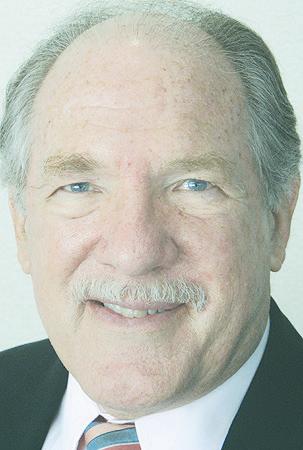
“The small business sector is responsible for the production of over 40 percent of GDP and employment, a crucial portion of the economy. But for 29 consecutive months, small business owners have expressed historically low optimism, and their views about future business conditions are at the worse levels seen in 50 years,” said Bill Dunkelberg, chief economist of the NFIB. “Small business owners need relief as inflation has not eased much on Main Street.”
The NFIB bases the index on the results of monthly surveys of members of the small business advocacy group, most of them small business owners. For May, five of 10 components of the index increased, while three decreased and two remained unchanged. Six of the components were in negative territory.
The proportion of NFIB members who responded to the survey upon which the May index was based who expected the economy to improve rose seven points from April. But at a net negative 30 percent, more members anticipated worsening conditions.
A net 23 percent reported plans for capital outlays, up a point. A net 4 percent said they consider now a good time to expand, unchanged from April.
The share who said they expect increased sales fell a point. At a net negative 13 percent, more anticipated decreased sales
The proportion of members who said they expected increased earnings fell three points to a net negative 30 percent. Among those reporting lower profits, 32 percent blamed weaker sales, 15 percent cited rising material costs and attributed the situation to labor costs.
Small business owners continue to report difficulty in hiring employees, but a smaller proportion of owners expect to raise wages.
The National Federation of Independent Business reported a net 42 percent of respondents to a May survey reported unfilled job openings, up two points from April.
But the proportion of those planning to increase compensation in the next three months fell three points between April and May to a net 18 percent. That’s the lowest level since March 2021.
Contributors Opinion Business Briefs Business People Almanac
The NFIB conducts monthly surveys of members of the advocacy group, most of them small business owners.
A net 15 percent of owners who responded to the May survey said they plan to increase hiring in the next three months, up three points from April to the highest level this year.
While 60 percent reported hiring or efforts to try to hire in May, 51 percent reported few or no qualified applications for the positions.
A net 37 percent of respondents reported raising compensation. That’s down a point from April, but still historically high.
A net 15 percent of members reported plans to increase employment, up three points. But 42 percent of members also reported hard-to-fill job openings, up two points.
The share of members reporting plans to increase inventories was unchanged from a month ago. At a net negative 6 percent, more anticipated decreased inventories. The proportion of those who said existing inventories were too low fell four points to a net negative 8 percent.
Asked to identify their single most important business problem, 22 percent cited inflation, followed by the quality of labor at 20 percent. A net 25 percent of members reported increases in average selling prices, while 37 percent reported increased compensation.
Mesa County sales tax collections trend upward
Sales tax collections, one measure of retail activity, continue to trend upward in Mesa County on a year-over-year basis.
The county collected nearly $4.2 million in sales taxes in May, an increase of almost $160,000 and 4 percent over what was collected during the same month a year ago. May collections reflect April sales.
Tax collections on retail sales topped $2.4 million in May 2024, an increase of 3.7 percent over the same month in 2023. Increases in tax collections on the sales of clothing and general merchandise more than offset declines in collectons on the sales of automobiles and sporting goods.
Mesa County collected nearly $1.75 million in taxes on sales in other industries in May, a 4.3 percent increase over the same month a year ago. Increased collections in the construction, hotel and restaurant and manufacturing industries more than offset declines in the oil and natural gas and utilities industries.
Through the first five months of 2024, the county collected more than $20 million in sales taxes, an increaase of almost $600,000 and 3.1 percent over the same span in 2023.
Mesa County collected another $7.6 million in sales taxes it distributed back to cities and towns in the county, including more than $4.4 million to Grand Junction, nearly $1.4 million to Fruita, $971,413 to Palisade and 416,320 each to Collbran and De Beque.
Year-to-date tax collections on retail sales rose 4.2 percent
to top $11.8 million. Increased collections on the sale of general merchandise, home improvements and clothing more than offset decreased collections on automobiles and sporting goods.
Year-to-date tax collections on sales in other industries totaled almost $8.3 million, a 3.3 percent increase. Increased collections on sales in the hotel and restaurant, rental and wholesale industries more than offet decreased collections in the construction, oil and gas and utilities industries.
Use tax collections — nearly all of them collected on the sales of automobiles purchased outside the county, but used in the county — totaled nearly $380,000 in May. That was a 3 percent increase over the same month a year ago.
Through the first five months of 2024, use tax collections totaled almost $1.9 million, an 8.5 percent increase over the same span in 2023.
June 20-July 10, 2024 The Business Times Page 15 News Trends
F
F
MESA COUNTY TAX COLLECTIONS May 2023 May 2024 Sales taxes $4,018,677 $4,178,183 s 4% Use taxes $368,712 $379,666 s 3% Total $4,387,388 $4,557,850 s 3.9%
Bill Dunkelberg
F
U.S. payrolls, jobless rate both increase
Employment continued to trend upward in the United States in May, but the unemployment rate also edged up to its highest level in more than two years.
Nonfarm payrolls increased 272,000 even as the jobless rate rose a tenth of a percent to 4 percent, according to the latest estimates from the U.S. Bureau of Labor Statistics. The jobless rate now stands at its highest level since January 2022.
Payroll estimates and the unemployment rate are based on separate surveys of businesses and households.
Initial estimates for job gains over the previous two months were revised downward a total of 15,000 to 165,000 for April and 310,000 in March. With the latest numbers, payrolls have increased an average of 232,000 a month over the past year.
For May, 6.6 million people were counted among those unsuccessfully looking for work. Of those, 1.4 million have been out of work 27 weeks or longer. Another 4.4 million people were counted among those working part-time because their hours were cut or they were unable to find full-time positions.
The labor participation rate — the proportion of population working or looking for work — edged down two-tenths of a point to 62.5 percent.
Payroll gains for May were spread out among industry
Employment index advances
A monthly index tracking labor trends has increased, signaling job growth in the second half of 2024, but at what could be a slower pace.
The Conference Board reported its Employment Trends Index rose nearly a point to 111.44 in May.
Will Baltrus, associate economist at the Conference Board, said the May uptick points to increases in employment, but the longer-term downward trajectory suggests slowing in monthly payroll gains.
sectors. Employment increased 68,000 in health care; 42,000 in leisure and hospitality; and 32,000 in professional, scientific and technical services. Government payrolls grew 43,000.
The average workweek held steady at 34.3 hours. The average manufacturing work week was unchanged at 40.1 hours.
Averagely hourly earnings rose 14 cents to $34.91. Over the past year, hourly earnings increased 4.1 percent.


Consumer prices for Denver area up 2.6 percent over past
year
A measure of prices and, in turn, inflation, increased in the Denver area in April and May.
The Consumer Price Index for the Denver, Aurora and Lakewood area rose six-tenths of a percent for April and May, according to the latest estimates from the U.S. Bureau of Labor Statistics.
Compared to the same time last year, the CPI was up 2.6 percent.
The CPI for a 13-state western region that includes Colorado edged up a tenth of a percent in May. Over the last year, the CPI for the region increased 3.3 percent.
The CPI for the United States rose 3.3 percent in May compared to a year ago. That’s down slightly from a 3.4 percent year-over-year gain in April.
For the Denver metro area, the food index edged up a tenth of percent over the past two months, while the energy index rose 2.5 percent because of higher gasoline prices.
Over the past year, food prices and energy prices both rose 1.9 percent.
In the western region, food prices rose 2.7 percent over the past year and energy prices rose 5.4 percent as a result of higher electricity prices.
For the U.S., the year-over-year increase in the CPI was slightly lower in May than April as lower gasoline prices counteracted high costs for housing. Consumers paid an average of $3.58 a gallon for gasoline at the end of May and $3.43 a gallon as of June 10.
While the rate of inflation remains above the long-term target of 2 percent, the latest CPI reading could offer the evidence the Federal Reserve needs to reduce the higher interest rate it imposed to curb inflation.
Stripping out the more volatile good and energy prices, the so-called core CPI edged down a tenth of a percent between April and May to two-tenths of a percent.
Housing prices remained elevated, however. Annual shelter inflation was at 5.4 percent in May, down from 5.5 percent in April. Still, that’s lower than a peak of more than 8 percent in March 2023.
Meanwhile, car insurance was up 20.3 percent over the past year, while the cost of medical care increased 3.1 percent.
F Page 16 The Business Times June 20-July 10, 2024
F
F Subscribe today (970) 424-5133 www.thebusinesstimes.com
COMING ATTRACTIONS
n The Business Incubator Center in Grand Junction has scheduled a small business exporting roundtable and bookkeeping boot camp.
The exporting roundtable with the U.S. Commercial Service is set for 9 to 10 a.m. June 25 at the center, located at 2591 Legacy Way. Participants will learn about available resources to help them with international sales strategies.
A bookkeeping boot camp is set for 9 a.m. to 2 p.m. June 27. Participants will learn how to set up and track business accounting records, including balance sheets, cash flow projections and income statements. Admission is $75.
To register for or obtain more information about events, services and programs at the Business Incubator Center, call (970) 243-5242 or log on to https://gjincubator.org.
n The next Coffee Club free networking meeting is set for 9 to 10 a.m. June 21 at the FWorks meeting room, located at 325 E. Aspen Ave. in Fruita. The meeting will include a presentation by Tony Lee, Mesa County veterans service officer. For more information, visit https://gjincubator.org or https://fruitachamber.org or
n The Grand Junction Area Chamber of Commerce has scheduled a quarterly membership lunch for noon to 1:30 p.m. June 24 at Colorado Mesa University. Admission is $25 for chamber members, $35 for others. To register or obtain more information about upcoming chamber events, call (970) 242-3214 or visit https://gjchamber.org.
Reducing financial stress
Supporting well-being beneficial for employees as well as employers
Financial stress affects not only employees, but also the workplace environment and productivity. According to the Survey of Consumer Finances, almost half of American households in 2022 had no retirement savings.
Opinion Business Briefs
Business People Almanac

I’ve worked in many industries as well as everything from small businesses to nonprofits to large corporations. I always believed my employers cared about me. But it wasn’t until I joined Insight Financial Solutions that my employer discussed financial wellness with me.
In hindsight, I realized I never had an employer express concern for my financial well-being.
These conversations highlighted the importance of financial wellness in a way I never experienced before. As I learned more about financial wellness, I reflected on my past experiences and realized my previous employers rarely provided education on financial matters. There was little emphasis on the importance of retirement accounts. No one explained what a 401(K) was or why I should enroll in one, even when the employer had a 401(K) plan. I realized this could be a common theme based on the statistics above. Employers should recognize the crucial role they play in educating employees about financial health. Offering basic financial resources can improve employees’ financial well-being and, in turn, benefit the organization.
When employers discuss financial wellness and provide resources, it sends a powerful message to employees: It shows employers care about the well-being of employees. By addressing financial health, employers reduce financial stress, leading to a more productive and engaged workforce. This not only improves the lives of employees, but also benefits businesses by fostering supportive and thriving workplaces.
Financial stress exerts profound effects on mental and physical health, leading to decreased productivity, higher absenteeism and increased turnover. According to a survey by the American Psychological Association, money consistently ranks as a top source of stress for Americans. Employees who are financially stressed are more likely to experience anxiety, depression and other health issues, which in turn lead to higher health care costs for employers.
Moreover, financial stress affects workplace performance. Employees distracted by financial worries are less engaged and less productive. A study conducted by the International Foundation of Employee Benefit Plans found that 60 percent of employers reported financial stress affected employee performance. Stress can lead to presenteeism, where employees are physically at work, but not fully functioning.
Employers play a vital role in supporting their employees’ financial wellness. By implementing comprehensive financial wellness programs, employers can help their workforces achieve better financial health and, in turn, improve business outcomes. Here are some strategies employers can adopt:
n Retirement savings plans: Providing access to retirement savings plans is a fundamental step. Employers should ensure employees are aware of the programs they offer — such as 401(K) plans or SIMPLE-IRAs — and understand the benefits of participating. Matching contributions incentivize employees to save, enhancing their financial security.
n Financial education and counseling: Financial education workshops and one-on-one counseling help employees manage finances more effectively. Topics can include budgeting, debt management, saving strategies and investment basics. Financial literacy empowers employees to make informed decisions and reduces financial stress.
n Emergency savings accounts: Encouraging employees to set up emergency savings accounts provides a financial safety net for unexpected expenses. Some companies offer programs in which employees divert part of their paychecks into savings accounts.
n Employee assistance programs: EAPs offer support services, including financial counseling. These programs help employees address immediate financial crises and develop long-term plans.
n Flexible benefits and payroll options: Providing flexible spending accounts and health savings accounts helps employees manage health care expenses. Offering such options as earned wage access, where employees access a portion of their earned wages before payday, can help them manage cash flow and reduce reliance on high-interest loans.
n Encouraging a financial wellness culture: Creating a workplace culture that prioritizes financial wellness improves employee morale and productivity. Employers should regularly communicate the importance of financial health and promote available resources. Celebrating financial milestones and providing positive reinforcement motivate employees to take proactive steps toward financial wellness. By addressing the financial well-being of employees, employers not only enhance the lives of their workforces, but also strengthen their own businesses. Financially healthy employees are more focused, engaged and loyal, contributing to thriving workplaces.
Jenny Yeager, a certified human resource professional, is administrative liaison with Insight Financial Solutions in Grand Junction and a board member of the Western Colorado Human Resource Association. For more information, visit https://wchra.org. F

The UI program is funded by employer premiums, not employee paychecks.
June 20-July 10, 2024 The Business Times Page 17 Trends Contributors
Jenny Yeager
Consistently deliver on the basics to succeed
Any business that strives to be adored by customers and become a lasting success must place a high priority on consistently satisfying customer wants and needs.

Customers come through your doors for a reason. Understanding what they want and fulfilling it will engender their satisfaction. In return, they’ll come back for more and tell others about their wonderful experiences.
Companies that choose to make it their business to foster happiness in their customers are the most enlightened and successful of all. They understand successful operations are first and foremost about serving people and ensuring their satisfaction. These businesses know that increasing the pleasure, satisfaction and happiness of the patrons who support them with their hard-earned dollars will build a base of loyal and referring customers.
One of the biggest differences between creating raving fans of your customers or not is getting the little things right on a consistent basis. Just a moment of reflection on your own experiences will reveal your favorite businesses — those you frequent often and tell others about with enthusiasm — consistently go the extra mile to provide you with a happy and satisfied feeling.
The greetings your customers receive is vitally important because it creates a lasting first impression each time they engage your business. If the greeting they receive is non-existent or lackadaisical — lacking in enthusiasm, genuineness, smiles and a caring attitude — your customers will be turned off from the start. Conversely, if they’re quickly acknowledged by a smiling, happy person — one who’s receptive and caring — they’ll be open to
One of the biggest differences between creating raving fans of your customers or not is getting the little things right on a consistent basis.
your business and what it has to offer. The greeting offers an opportunity to set the stage for success every time a customer chooses to do business with you.
I’ve yet to meet a person who didn’t want to be heard. Yet all too often, customers aren’t heard by the businesses serving them. When this occurs, customers aren’t being served at all. They’re undervalued and neglected — and they know it. This feeling won’t endear them to your business. When you truly listen to your customers and train your team members to do the same, customers will feel acknowledged, valued and cared for. The result is greater trust, rapport, increased customer satisfaction and loyalty.
When you and your team members truly listen to your customers, you’ll more accurately comprehend their wants and needs. Asking questions that will help you fully understand their desires and paying attention to their answers will position you to offer high-quality solutions. With this type of solid communication in place, your business creates the possibility of accurately meeting, and even exceeding, customer wants and needs.
The ways in which mistakes are handled constitutes another important demarcation among poor, good and exceptional businesses. Errors should never become the responsibility of your customers. This is a sure-fire way to damage your reputation and lose business. Own any missteps made by you or your team and do all you can, within reason, to correct the situation. The impressions
you leave with customers will be lasting ones. In exceptional companies, owners and team members want their customers to leave feeling not only satisfied, but also better than when they arrived. Ultimately, it’s the feeling you give your customers that matters most. When people leave your business feeling better, you’ve added value to their life. And value — a quality experience, not just a good price — is what they seek.
All of us have our favorite places to do business, and the reasons are obvious. These companies are the exception to the rule and have set themselves apart by going above and beyond in satisfying us. They truly care about their products and services as well as the people who make their success possible. Be a business that truly cares about your customer experiences and thrive.
If all of this seems overwhelming, engaging the assistance of a professional coach or consultant offers a way to identify weaknesses and turn them into strengths. Make it a priority to satisfy and even exceed customer wants and needs. Commit to operating a business that consistently delivers on the basics. Do it with integrity, care and gratitude. Because without satisfied customers, the success and happiness you desire could prove elusive.
Marcus Straub owns Life is Great Coaching in Grand Junction. His personalized coaching and consulting services help individuals, business owners, executives and companies build teams, organizations and lives filled with happiness and success. Straub is winner of the International Coach of the Year Award and author of “Is It Fun Being You?” He’s available for free consultations regarding coaching, speaking and trainings. Reach Straub at (970) 208-3150, marcus@ligcoaching.com or through the website located at www.ligcoaching.com. F

Page 18 The Business Times June 20-July 10, 2024
Marcus Straub
Thinking about starting a business?
Many people dream of leaving the rat race and starting their own businesses. Making that dream come true takes planning, money, other financial resources and hard work. One of the difficulties is deciding what type of business you want to start. Here are some ideas and resources to help get you started.
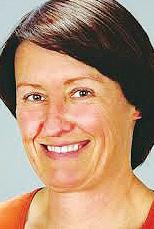
First, make sure you have the financial resources to cover living and business expenses for at least a year. The source of funds could be savings, a spouse or partner, family members, loans or — perish the thought — credit cards. Be realistic in estimating business expenses. Keep in mind these expenses can vary widely depending on the business you want to start.
If you plan to rely on credit or loans, talk to bankers and the U.S. Small Business Administration before you take the plunge.
Next, do your research to find businesses that align with your skills and interests and fill a need in your community. Often, the easiest business to start is one that uses your best skills, existing licenses and experience as a starting point. If you’ve written lots of materials for your employer, consider starting as a freelance writer or editor. If you worked at a financial services firm and hold current licenses, many financial services and insurance companies will be interested in having you represent them. If you’re a licensed general contractor, builders could be interested in contracting with you on an as-needed basis.
If you’re interested in starting a business or consulting or freelancing, plan to acquire any licenses or training you might need. It’s better to continue in your current employment and obtain the training and licenses during your spare time than resign and cover the expenses of living plus specialized training and licenses when you don’t have a paycheck.
Create a business plan and refine it as you move into operations. Your business plan offers a road map. This is the place where you get into the financial and operational aspects of starting and running a
business, even a part-time one. Some of the main considerations for your business plan include capital and other upfront costs; equipment, facilities and other expenses; rent, utilities and insurance; the cost to hire employees or contractors; and franchisee requirements should you go that route
Some of the more popular startup businesses include:
n Financial services, including accounting, employee benefits, insurance and investments. These services offer growth opportunities and independence, but require special licenses and lots of marketing and outreach to succeed.
n Business consulting. If you were a manager or go-to person in your past work, you might have valuable skills to offer businesses that can’t afford full-time advisors.
n Franchises. It’s helpful if you’ve at least some experience across the range of business operations, but the franchisor could offer enough support in areas where you’re weak. Most franchises don’t require special licenses or training. You get a proven business model, completed market research and franchisor support as part of the purchase. Many franchises can be launched for less than $10,000.
n Notary Public. This is state officer who’s authorized to witness and attest to the legalities of certain documents by stamping a seal and signing. Generally, you must pass an exam and background check. The cost to become a notary is reasonable.
Starting a business is exciting and scary. Operating your own business can be one of the best — or worst — experiences of your life. If you decide to become a small business owner, take the time to plan, consult with others and take advantage of community and government resources to create and grow your business.
Janet Arrowood is founder and managing director of the Write Source, a Grand Junction firm offering a range of services, including grant and proposal writing, instruction and technical writing. Reach her at janet.arrowood@thewritesourceinc.com. For more information, log on to www.TheWriteSourceInc.com.



F June 20-July 10, 2024 The Business Times Page 19
Janet Arrowood
Community centered model addresses rural issues
The problems rural America faces often go unnoticed and unaddressed in the hustle and bustle of urban life. Rural communities struggle with deep-seated geographical imbalances that weaken economic opportunities and quality of life. In many cases, wages stagnant and populations dwindle as economic activity concentrates in larger cities.

But new and innovative responses in rural economic development could help fill this growing gap. How do we address these issues? In my view, it’s a holistic, community centered model of economic development.
Community centered economic development goes beyond the old school, one-size-fits-all strategies and shapes solutions to the specific needs and potentials of individual communities. It weaves together various facets of community life and local resources into a comprehensive strategy that nourishes economic growth from within.
Central to the approach is active local stakeholder participation, by which businesses, governments, nonprofits and residents work out strategies and decisionmaking processes. If there’s a sense of being heard and valued, the resulting strategies are not only more relevant, but also tend to have the base of support that makes these plans sustainable over the long term.
The overarching goal is to cultivate an environment in which economic opportunities and quality of life go hand in hand.
Economic diversity is the key component of this paradigm. Many rural communities depend on one or two large industries and become economic monocultures. Diversification to involve such sectors as agriculture,
By embracing new technologies and fostering innovation, rural communities move into new economic areas. This could involve supporting startups through incubators and accelerators, providing grants for innovation and building broadband infrastructure to bolster businesses.
manufacturing, services and technology protects communities from economic downturns and promotes overall stable economic surroundings.
There’s another critical part of this strategy. It refers to the application of proper technology and practices to reduce environment effects and conserve resources so coming generations also can benefit from them.
Yet another important aspect of this strategy is skills development for local employment. With proper training — including career training, continuing education and school collaborations — skills gaps can be bridged, enabling local workers to prepare for and engage in new job opportunities.
Innovation and technology also play essential roles in transforming rural economies. By embracing new technologies and fostering innovation, rural communities move into new economic areas. This could involve supporting startups through incubators and accelerators, providing grants for innovation and building broadband infrastructure to bolster businesses.
What is the success that comes from using this type of holistic community based approach? Such an approach enables rural areas to weather economic booms and busts by diversifying their economies and strengthening their communities. It spreads economic benefits more evenly, reducing inequalities. It also preserves natural and cultural resources, making rural areas more appealing to both businesses and residents. This helps prevent people from leaving and attracts new residents looking for a better quality of life.
By understanding and addressing the root causes of economic disparities and investing in the long-term health of rural economies, the holistic, community centered model offers more than just a roadmap to economic resilience. It paves the way for rural communities to thrive in an increasingly complex global economy.
Could this community focused strategy offer the key to revitalizing rural America? The answer seems promising.
As we work together to implement these strategies, the potential for vibrant, resilient rural communities becomes an achievable reality and marks a significant move toward a future where every community, regardless of its starting point, has the tools to succeed.
Dalida Sassoon Bollig, chief executive officer of the Business Incubator Center in Grand Junction, is an experienced strategist with demonstrated work in international affairs. She brings to her duties experience in economic development, entrepreneurship, leadership, partnerships, public policy and trade. For additional information about programs and services offered at the center, call (970) 243-5232 or visit https://gjincubator.org. Reach Bollig by email at dbollig@gjincubator.org. F

Page 20 The Business Times June 20-July 10, 2024
Dalida Bollig
Leadership limiting factor in business success
The phrase “We have met the enemy, and they are ours” originates from a bit of military bravado during the War of 1812. Supposedly, Commodore Oliver Hazard Perry said this to General William Henry Harrison after the Battle of Lake Erie.

Cartoonist Walt Kelly adopted the phrase for his comic strip Pogo. In a parody of the famous battle report, Kelly changed it to: “We have met the enemy, and he is us,” highlighting the tendency of humanity to create its own problems.
I’d adopt and adapt that euphemism to describe what I believe is lacking in leadership.
As I’ve noted before, most employees in the workplace are looking for other jobs. Moreover, most of them don’t like their bosses, and they’re seeking remedies. Given the proportion of employees who recognize these issues, could it possibly be those in charge miss the point? Or are they simply not aware. Have we met the enemy, and they are us?
In my opinion, business school prepare leaders to be financial whizzes. They do little to prepare people to actually lead. Many of these schools don’t have the foggiest idea of the powerful benefits of servant leadership.
There are exceptions, of course. In Grand Junction, Colorado Mesa University and CMU Tech offer several courses on servant leadership. Some taught by yours truly.
More generally, people who are promoted into positions of authority are deemed those with the best technical proficiency. Once elevated into leadership roles, these poor people are mostly left to their own devices. Faking it here ain’t making it. Or so an old leadership coach of mine once said.
People need training. More importantly, people should be selected on the basis of specific emotional intelligence criteria. Scrap technical skills in favor of the behavioral skills most employees crave. Emotional intelligence can be taught. Desire is required.
Are you the type of leader who assumes hiring the best technical person will solve your employee wants and desires? If so, a closer look in the mirror is required.
Focusing efforts and energies on developing leaders who can develop leaders constitutes the single best strategic advantage any organization can adopt.
John C. Maxwell, the author and speaker who focuses on leadership, but it this way: “The effectiveness of your work will never rise above your ability to lead and influence others. You cannot produce consistently on a level higher than your leadership. In other words, your leadership skills determine the level of your success — and the success of those who work around you.”
Maxwell developed a concept he termed the law of the lid. It states that leadership ability determines a person’s level of effectiveness and potential influence. Imagine a lid on a container. The higher the leadership ability, the higher the lid, allowing for greater potential. Conversely, if leadership ability is low, the lid limits effectiveness. If your leadership rates an eight on a scale of one to 10, your effectiveness can never be greater than a seven.
The McDonald brothers, the founders of what later became the McDonald’s restaurant chain, exemplify this. Their genius was in customer service and kitchen organization, but weak leadership limited their success.
Remember, your leadership capacity directly affects the potential of your organization.
Timothy Haggerty and his wife, Bernadette, operate a consulting firm based in Grand Junction that helps clients transition from command and control to servant leadership and change the view of wages and benefits from expenses to investments. Haggerty brings to the venture more than 40 years of experience in operations management and a record of decreasing costs while increasing productivity and revenue. He also serves as president-elect of the Grand Junction Kiwanis Club. Reach him at info@timothyhaggerty.com, (610) 737-0496 or www.timothyhaggerty.com
Here’s help to beat the summertime heat and keep fit
We wait all year, it seems, for summer to arrive. Now it’s finally here.
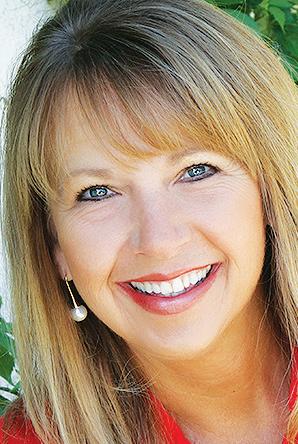
When most of us think of summer, we think about outdoor fun, vacations and a chance to kick back. Summer offers many opportunities to stay active. Beware, though: Changes in schedules present challenges in keeping your fitness routine on track. So what can you do to have the most active, productive and fun-filled summer ever?
Warm weather provides many opportunities for enjoying outdoor activities. Take the family camping, fishing or hiking. Work in your garden. Enjoy a baseball game. Part of summer fun and fulfillment is enjoying the outdoors and the people you’re with. Your normal schedule could be altered whether through work or having children at home. Those changes can affect daily routines, including exercise schedules. Here are a few tips to avoid sabotaging yourself this summer:
n Set a summer goal. It’s almos mid-year. Ask yourself how you’ve done so far this year on your New
Year’s resolutions. You might have succeeded in some areas, but not others. You could need to re-evaluate your goals to make them more realistic and attainable. Maybe you didn’t set goals. This is a great time to start. Try setting a different goal. What will that goal look like? It might be trying a new sport, learning to swim or visiting a national park.
n Stick to a schedule. Make sure your summer days include some structure, like getting up at the same time each day and eating meals at set times. Plan activities for specific times — exercising before breakfast, for example.
n Stay busy. Without your appointment book filled, it could be easy to fall into a trap of becoming bored. Boredom goes hand in hand with low energy. Filling your days with stuff to do will give you a sense of accomplishment. For many of us, summer still means going to work each day. But with more daylight hours, you don’t have to miss out. Whether you’re taking a vacation or just a weekend, include activities the family already enjoys as well as something new.
n Manage the heat. Warmer weather is appreciated, but hot days can seem unbearable. During these times, move your activities elsewhere. Exercise at the gym, splash in a pool or go bowling. When you find yourself

outdoors during scorching temperatures, remember to stay safe. Wear sunscreen or a long-sleeve shirt to protect your skin from harmful rays. Don’t forget the sunglasses and hat, too. Clothing that wicks moisture away from your skin as you perspire keeps you cooler. One of the most important items to keep you safe is water. Stay hydrated.
n Eat healthy. This seems like an easy thing to do with all the fresh vegetables and fruits available. Beware of some of the foods associated with summer events, though. Backyard barbecues, campfire s’mores and ice cream treats can ruin the best-laid plans of staying fit through the summer. You can still enjoy treats, just keep them occasional.
Make summer a time to enjoy. Write down your summer goal and work toward realizing that goal. Make the most of every day, and you’ll make this summer your best ever.
Paula and Dale Reece own Crossroads Fitness Centers in Grand Junction with a downtown location at 225 N. Fifth St. and north location at 2768 Compass Drive. For more information, call 242-8746 or visit the website located at www.crossroadsfitness.com. F

F June 20-July 10, 2024 The Business Times Page 21
Paula Reece
Timothy Haggerty
Investing in America pays off for business
Contributors Opinion Business Briefs Business People Almanac
A new year affords a new opportunity to meet local needs
President Joe Biden’s Investing in America agenda delivers generational investments to grow America’s economy, restore competitiveness, tackle climate change and reshore manufacturing. All while strengthening small businesses, the backbone of our economy.
A new year almost always brings an opportunity for a fresh start and renewed ambition to do things better.
The Investing in America agenda has fueled a historic nationwide small business boom, with the first, second and third strongest years of new business applications on record occurring in President Biden’s first three years in office. New Census data shows the United States exceeded 17 million new business applications filed since 2021 — 415,000 in Colorado.
In business, that usually boils down to providing customers better products and services faster and at lower cost than competitors. Part of the process must include listening to customers to determine what they actually need and then meeting that need. After all, it does little good to offer the latest and greatest if nobody actually wants what you’re selling.

With the end of the COVID-19 pandemic and reopening of U.S. Small Business Administration offices nationwide, we’re seeing increasing demand for business training services, lending programs and information on ways business owners can secure federal government contracts.
Just like the businesses that belong to the group, the Grand Junction Area Chamber of Commerce invariably starts out the new year with a reassessment of the services and resources it provides and how well they match with members needs. Jeff Franklin, the new chairman of the chamber board of directors, personifies this approach in describing what he considers his role for the coming year: listen to members, determine their needs and then meet those needs. It’s a role with which Franklin is familiar as market president of Bank of Colorado.
The Investing in America agenda refers to four major bipartisan laws enacted during President Biden’s first three years in office: the American Rescue Plan Act, Bipartisan Infrastructure Law, CHIPS and Science Act and Inflation Reduction Act.
The process will take on a more structured approach in what the chamber plans as the resumption of a program aptly called Listening to Business. Under the program, business owners participate in in-depth interviews to identify barriers to growth and other problems they encounter.
The new year offers a good time to join the proverbial club.
As an advertiser or reader, what do you need from the Business Times?
While business journals traditionally gather and report the relevant news to readers, communication isn’t necessarily a one-way street. That’s especially true as Web sites and e-mail make the dialogue more convenient than ever.
Each of the four laws includes major new public investments in our economy and America’s critical systems. These four laws have set in motion a rebuilding of our roads, bridges and airports; a strengthening of supply chains; an upgrading of our clean energy and clean water systems; and much more. To date, these historic laws have secured funding for more than 23,000 infrastructure projects across the U.S., including expanded affordable internet access for 16 million households. All this while also attracting more than $425 billion in total private sector manufacturing investments and sparking the creation of more than 800,000 new manufacturing jobs.
Good publications don’t exist in a vacuum. They respond to the needs of advertisers and readers. They provide what’s needed.
To help entrepreneurs access the benefits of these four new laws, the SBA makes sure small firms have the resources, tools and knowhow to capitalize on vast new federal investments available today and in the near future. That’s why the SBA launched its Investing in America Small Business Hub at www.sba.gov/IIAhub.
So what do you need?
Is there additional news coverage that would help keep you informed about local business developments? Are there features that would be interesting or useful? Is there advice that would make your jobs a little easier?
It’s equally important to ask what you don’t need. With limited time to produce content and limited space in which to publish it, would time and space be better devoted to something else?
At this hub, business owners will get information on how to apply for the many Inflation Reduction Act rebates and tax credits to complete energy efficiency projects. Business owners also will learn about federal construction projects funded by the IIA in their states and determine how the CHIPs Act could benefit their bottom lines. New technological assistance guides to help entrepreneurs access Investing in America grants, contracts and market opportunities.
What’s good? What isn’t? What’s needed? What isn’t?
There’s never been a better time for entrepreneurs to benefit from historic federal programs that directly benefit our business community.
Let us know. Send us an e-mail. Comment online on the Business Times Web site at www.thebusinesstimes.com. You could even write an old-fashioned letter to the editor if you’d like. Your feedback, both positive and negative, is valued and will be carefully considered.
Good publications are the result of not only the efforts of their staffs, but also collaborative efforts involving advertisers and readers.
Like any other good business, we want to listen to our customers, find out what they need and then meet those needs.
It’s a new year. Please help us to do so. ✦
Aikta Marcoulier serves as administrator of the U.S. Small Business Administration Region 8 headquartered in Denver. She oversees SBA programs and services in Colorado as well as Montana, North Dakota, South Dakota, Utah and Wyoming. For more information about the Investing in America Small Business Hub, visit www.sba.gov/IIAhub. Visit the SBA website at www.sba.gov to learn about other resources available to start, grow and expand business. Follow the SBA onLinkedIn and on Twitter @SBArockymnt. F
THE BUSINESS TIMES
609 North Ave., Suite 2, Grand Junction, CO 81501 TEL (970) 424-5133 • FAX (970) 424-5134
Publisher/Owner: Craig R. Hall Editor: Phil Castle
Reach advertising at: publisher@thebusinesstimes.com
Reach the editor at: phil@thebusinesstimes.com.
Subscribe or submit press releases online at www.thebusinesstimes.com
The Grand Valley Business Times, a subsidiary of Hall Media Group LLC, is published twice monthly and distributed throughout Grand Junction, Fruita and Palisade. Advertising rates and deadlines are available upon request. Opinions expressed in this publication are those of the writers and do not necessarily reflect the views of the publisher, editor, staff or advertisers. Copyright © 2015 — All rights reserved.
Will JJ ever let us in on his campaign’s
biggest secrets?
Bold predictions for 2015 more like not-so-bold repeats
It’s that time of year when resolutions and prognostications abound. My favorite saying applied to New Year’s resolutions is in saying they’re basically a bunch of promises to break the first week of January. And while I won’t predict a whole lot, I can pretty much accurately nail a few things that without question will make the news. You will see these are pretty, well, predictable:
Yeah. I thought my last column was my last column on the personal conundrum I have with the Mesa County Republican leadership and JJ Fletcher. But as I stated in my headline for the last column, these folks are the gift that keeps on giving. This time with a little help from their friends.
 Craig Hall
Craig Hall
Craig Hall
Craig Hall
It’s becoming clear these people just can’t leave things alone. Then again, they can’t see JJ shouldn’t have run for election to the Mesa County Commission in the first place. I have no problem with them coming at me if it would be something of substance, like some real reasons JJ is running. Despite a few attempts to ask JJ directly why he’s running or giving me examples of what he’d do differently or better than Mesa County Commissioner Janet Rowland, the only answer I got was a block on JJ’s Facebook page and an offer for coffee or email to get some answers. Although I suspect those communications would result in more talking points instead of actual answers.
Because that’s all JJ has been running on, talking points. Here are his top three: It’s time, Janet Rowland is a career politician and he’s different with new ideas. Could JJ be more vague? I guess it beats talking about issues.
■ Prediction one: There will be some sort of weather event, natural disaster or heinous occurrence where someone will be interviewed and say the following: “I’ve never seen anything like that in my lifetime.” It’s as if this person is a required attendee at every news reporting event. While I understand most people’s perspective can indeed be limited by, or contained within, their own personal experiences, it is too much to ask to consult some historical perspective before saying such a thing? Yes, this response can apply to some events. But when it comes to weather and natural disasters, I’m pretty sure this is simply history repeating itself. Same as it has for millions and millions of years. More important, the planet made it! What didn’t were certain species. How’s that for perspective?
■ Prediction two: When it comes to a crime or something that occurs between humans, the other required attendee at all news reporting events is the person who says this: “They we’re just the nicest people, and in no way did I see something like this coming.” Exactly. No one does most of the time when it comes to neighbors and acquaintances. People should be surprised at what goes on from time to time in their neighborhoods, towns and with people they know because people are good. And for the times that they shouldn’t be shocked — like with politicians, repeat offenders and terrorists — where’s the interview that says, “This doesn’t surprise me in the least.”
Let’s start with it’s time. My dad ran for school board in my hometown using the slogan “It’s time for a change.” He lost in his first campaign. I would attribute the loss mainly to thinking change alone was a reason to vote him in. But it goes deeper. By constantly saying “it’s time,” candidates think they don’t have to show any actual reasons to be elected. Change alone is enough. Yes, it worked for 50 percent of Barack Obama’s presidential campaign. But Obama could drone on for days with an air of confidence on failed ideas while saying nothing. Anyone see JJ do even a minute?
So how about Janet is a career politician? Now if you read the recap of the “debate” from last week on the front page of the local daily, you saw a “quote” from Janet saying she’s, “…only been in office 11 years,” which to some might sound like a long time. What you didn’t read was the first part of Janet’s answer, which spoke to her being a county resident for more than 40 years and her time in office is a small part of all she’s done in her public service to the county and work experience. Then again, biased questions get you edited, talking point answers instead of a quality reporter just writing down what was actually said. That “gotcha” answer was before the “story” descended into a
■ Prediction three: Something good will happen economically, and the government will take credit for it. The most recent example is gas prices, where people ask me why I won’t credit the president for low gas prices. My answer is simple: Government never makes the price of something go down and simply takes credit for good news. Gas pricing is subject to many global factors. Now there are government answers to addressing some of them to keep prices stable for Americans, but our government has none of them in place. The only things it has in place in the
long run always hurt consumers. Another fact is that unemployment reaches a certain level based on the economy. And while the government might brag the number is low, it’s more than likely the government did something to cause that number being low — and not in a good way. Conversely, when business picks up, it’s because the people who need to buy widgets who were not buying widgets because the economy was contracting due to natural (or unnatural, government caused) reasons, decided we better buy some widgets. The government had nothing to do with this.
martyrdom about our former county health director. Like I said, a little help from JJ’s friends. Who knew a Republican had friends at the local daily?
Last, JJ claims he’s different in how he’ll listen to citizens and get the facts before making decisions and talking up his collaboration skills. In fact, JJ has been quoted saying he’d do the “will of the people” if elected. It’s a bad thing to elect someone on basically, “Give us Barabas.” This is also where I ended up getting blocked on Facebook for having the temerity to ask JJ for some examples of hasty, bad decisions our commissioners have made, a successful collaboration or even a new idea he has in mind. I got crickets. Those are the questions that resulted in me being blocked. For JJ supporters, you should note Janet doesn’t block anyone from her pages.
So JJ supporters, perhaps you should “make your vote count” with someone who’ll listen and give access to the public, like Janet, all while doing the actual work and getting results for the county. Also note, that was my dad’s slogan the second time he ran for school board. He won because he went to voters and welcomed input. It’s becoming obvious JJ does not.
I apologize for having to repeat some of the actions of JJ described in my previous columns, but they’re important to note because JJ’s friends are now also running a campaign of “hate.” And by “hate,” I mean the new, leftist style of saying anyone who disagrees with your candidate or asks the wrong question is a “hater” — which I’ve now been accused of by the former Mesa County Republican party chair and other JJ surrogates, including one of his daughters. Can you hear Ringo singing? I can. As I told the current county Republican party chair, “You’re all acting like a bunch of Democrats.” You know how I know? It’s what they’re saying I’m doing and there’s nothing more Democrat than that. Maybe next they’ll take the local, communist, billboard buyer’s strategy and go after my advertisers. But when you write opinion columns in River City, you take your chances — both sides of the aisle.
So the campaign will go on with Janet running on her record. You know, the one JJ can’t show any problems with. And JJ will go on spouting talking points that should provoke followup questions. Yet they never come due to who’s “allowed” to toss the softballs.
Hiding like Biden and talking like Obama. What a way for a “Republican” to run for office. Which leads to one last question: Who’s running JJ?
■ Prediction four: In keeping with things the government does, I predict the government will manipulate the numbers to make the claim the economy is getting better because of how hard it is working to help all of us “working Americans.” Now you might say, “Craig, you always say this about President Obama because you don’t like him.” You’re right in a sense. I don’t know the man, but what I know of him and his thinking, I don’t like it or him one iota. Before you go off, however, I didn’t like President Bush and his bailouts, stimulus and his abandoning the free market to save the free market. And I don’t know him either. What the government does, and the only thing it can do, is hurt the economy. Unless it does nothing or put criminals in jail instead of partnering with them, nothing the government does will help. Always look at it this way, whatever the government says it is doing, whatever the name of the law it is passing, or whatever the name or goal of the bureaucracy it is presenting to the people, expect the polar opposite to occur. I guess what I’m saying is that perhaps it’s time to get out of our own perspective. There’s plenty of history books and historical research out there to begin to understand that all of this has happened before. And it will again, whether the topic is people or government. The best recommendation is to find some books or try that whole Google thing. There’s a lot of information on the Great Depression. The truth is it wasn’t even a good one until the government got involved. There’s also plenty of research on the medieval warm period when the planet was much warmer than today with a whole lot less people (and warmer well before man was here at all). And yep, people have been killing other surprised people since history was first written. Maybe some research will help stop all of these trends. Otherwise, we’ll be saying we’ve never seen anything like it in our lives. And not in a good way.
Craig Hall is owner and publisher of the Business Times. Reach him at 424-5133 or publisher@thebusinesstimes.com.
Craig Hall is owner and publisher of the Business Times. Reach him at (970) 424-5133 or publisher@thebusinesstimes.com. F
Page 22 The Business Times June 20-July 10, 2024 PAGE 22 THE BUSINESS TIMES JANUARY 15-28, 2015
Opinion
✦
Copyright © 2024 — All rights reserved.
Aikta Marcoulier




June 20-July 10, 2024 The Business Times Page 23
n TIMBERLINE BANK ANNOUNCES ALLIANCE WITH ASHTON THOMAS CONFLUENCE TEAM
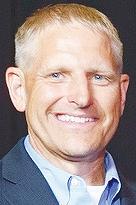

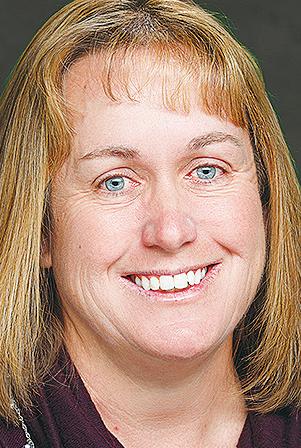
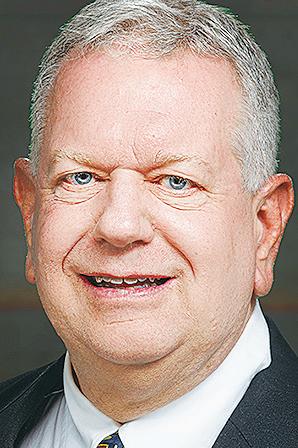
Opinion Business Briefs Business People Almanac
Timberline Bank headquartered in Grand Junction announced an alliance with the Ashton Thomas Private Wealth Confluence Team to provide a range of services to clients.
“Clients entrust us not only with their wealth, but also with their aspirations for the future. Our alliance with Ashton Thomas’ Confluence Team reinforces our commitment to providing comprehensive financial solutions,” said Jim Pedersen, co-chief executive officer of Timberline Bank. “By integrating private wealth advisement within our private bank, we ensure that our clients receive personalized guidance tailored to their unique goals, ultimately empowering them to achieve financial success with confidence.”
Jeff Taets, co-CEO of Timberline Bank, said the bank will maintain a close working relationship with what’s now the Ashton Thomas Confluence Team. “Celebrating the successful transition of the Confluence Team to Ashton Thomas is a momentous occasion for us. We are excited to continue this relationship knowing that our shared core values and customer-centric approach will drive us toward even greater success together.”
The Confluence Team includes Angela Johnson, managing wealth advisor; Doug May, wealth advisor; Nic Hansen and Joshua May, associate wealth advisors; Denise Cook, senior associate for private wealth client serivces; and Lisa Mauser, associate for private wealth client services.
Johnson and May joined Ashton Thomas Private Wealth as part of the Confluence Team based in Grand Junction. The team had about $300 million in assets under management while at their prior firm, WealthSource.
“Ashton Thomas offers a supportive environment with experienced professionals who approach wealth advice like we do. In the end, we made the decision because we believed this was the right choice for the clients we have served for so long,” Johnson said.
Daniel Barry, chief growth officer for Ashton Thomas, said Johnson and May are part of the firm’s second team and third office location in Colorado. “They are outstanding, high-caliber financial professionals who have diligently served clients for decades in the Western Slope region. We are thrilled to have them based in the Grand Junction Timberline Bank branch.”
Ashton Thomas Private Wealth offers a range of services, including fee-based financial planning and investment portfolio management, retirement plan counseling, securities brokerage, life and health insurance and income tax preparation. For more information, visit https://advisors.ashtonthomaspw.com/ confluenceteam.
Timberline Bank operates branches in Grand Junction as well as Aspen and Montrose. For more information, log on to the website at www.TimberlineBank.com.
SHARE YOUR NEWS
The Business Times welcomes submissions for free publication in Business Briefs. Email items to phil@thebusinesstimes.com or submit a news release online at www.thebusinesstimes.com.
n LOCAL, STATE AND FEDERAL OFFICIALS TO PARTICIPATE IN COMMUNITY BREAKFAST

Local, state and federal government officials are expected to participate in an upcoming event organized by the Fruita Area Chamber of Commerce.
The chamber has scheduled its state of the community breakfast for 8:30 to 10:30 a.m June 25 at the Absolute Prestige Ranch located at 1351 Q Road in Loma.
Admission is $25 for chamber members and $35 for others. To register or obtain more information, visit https//fruitachamber.org or call (970) 858-3894.
“Our upcoming state of the community breakfast offers a valuable opportunity for our member businesses to engage directly with leaders from local, county, state and federal levels,” said Kayla Bowers, executive director of the Fruita Area Chamber of Commerce. “This event will provide insight into how recent legislative sessions will affect our local business climate. We encourage attendees to participate actively, ask questions and contribute to the growth and betterment of Mesa County.”
Speakers are scheduled to include Fruita Mayor Matthew Breman, Mesa County Commissioner Cody Davis, State Reps. Matthew Soper and Rick Taggart and State Sen. Janice Rich. Representatives from the offices of U.S. Sens. Michael Bennet and John Hickenlooper also are scheduled to participate.
Each speaker will review the past year, discuss their plans and goals and answer questions.
n WEEKLY FARMERS AND MAKERS MARKET RETURNS TO REED PARK IN FRUITA
A weekly farmers and makers market has returned to Fruita.
The Fruita Area Chamber of Commerce presents the market, scheduled for 8:30 a.m. to noon Saturdays through Oct. 26.
The market is located at Reed Park at 250 S. Elm St. Public parking is available at the Fruita Civic Center and on the corner of Mulberry Street and McCune Avenue.
The market features a variety of vendors selling everything from fresh produce to artisan and handcrafted items. The markets also feature educational presentations with local farmers as well as speakers from Atlasta Solar and Family Health West. Local musicians perform.
Family Fun Days are scheduled the second Saturdays of the month and include a variety of activities.
The Fruita Farmers and Makers Market accepts Supplemental Nutrition Assistance Program (SNAP) cards and participates in the double up food bucks effort in matching up to $20 on SNAP card purchases of vegetables.
For more information about the Fruita Farmers and Makers Market, visit https://fruitachamber.org/fruita-farmers-market.
NOTEWORTHY
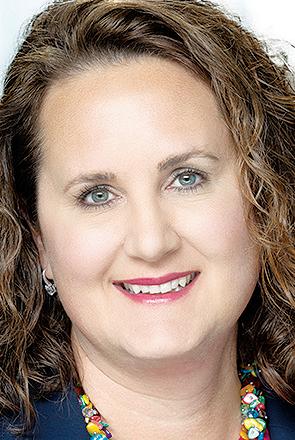
HopeWest — a hospice, palliative care and grief support services provider based in Grand Junction — received recognition for providing highquality and compassionate care to patients and their families. HopeWest received the Hospice CAHPS Honors Award for 2024. The award is based on the results of the Hospice Consumer Assessment of Healthcare Providers and Systems survey satisfaction measures from the point of view of caregivers.
“We acknowledge the privilege to be invited into the homes and lives of people experiencing tender moments while nearing the end of life,” said Cassie Mitchell, president and chief executive officer of HopeWest. “This survey gives caregivers a voice, allowing us to gain insight into both what’s going well and areas for improvement. This year, as many before, we not only met, but exceeded the expectations of the families we served. And I’m grateful for the hard work of our team members who kept our mission at the forefront of care.”
To be considered for the Hospice CAHPS Honors Award, HopeWest scored above the HEALTHCAREfirst national performance score on the Hospice CAHPS willingness to recommend question.
An additional 23 indicators of quality also were evaluated and compared to the national performance score calculated from all partnering hospices.
HopeWest operates an in-patient hospice center in Grand Junction and provides hospice, palliative care and grief support services in a large area of Western Colorado. For more information, call (970) 241-2212 or log on to www.HopeWestCO.org.

Page 24 The Business Times June 20-July 10, 2024
F
Jim Pedersen
Jeff Taets
Angela Johnson
Doug May
Cassie Mitchell
Kayla Bowers



June 20-July 10, 2024 The Business Times Page 25
Opinion Business Briefs Business People Almanac
Business Briefs Business People Almanac
n ROICE-HURST HUMANE SOCIETY HIRES CHIEF EXECUTIVE OFFICER

Zebulon Miracle was hired as chief executive officer of the Roice-Hurst Humane Society animal shelter based in Grand Junction.
Miracle brings to his latest duties experience in leadership with nonprofit profifts, including fund-raising and relationships building. He served as executive director of United Way of Mesa County and before that, held roles with Gateway Canyons Resort and Museums of Western Colorado. He holds a master’s degree in leadership and administration.
Miracle succeeds Anna Stout, who left Roice-Hurst after nine years as CEO.
Matt Bell, co-chairman of the Roice-Hurst Humane Society board of directors, praised Miracle’s selection. “Zebulon’s passion for our mission and this community, coupled with his proven leadership abilities, positions him as the ideal lead to guide our efforts in promoting the enduring bonds between pets and their people.”
Stout also praised Miracle. “Zeb is a visionary thinking and understands the correlation between community health and animal welfare, which is core to the innovative programs Roice-Hurst provides to our community. RoiceHurst’s mission and team mean so much to me, and I know that the organization is in trusted, capable hands under Zebulon’s leadership.”
The Roice-Hurst Humane Society provides care and adoption services for dogs and cats as well as other programs for pets in Mesa and Delta counties. For more information, visit https://rhhumanesociety.org.
n GRAND JUNCTION REAL ESTATE FIRM HONORS BEST-SELLING AGENTS FOR MAY
Toni Heiden and Anthony Heiden werre honored as the top-performing agents for May at Heiden Homes Realty in Grand Junction.
The two tied for the most closings for the month.
Toni Heiden, owner of Heiden Homes Realty, brings to her duties 46 years of experience as a Realtor in Western Colorado. She hold emeritus status with the National Association of Realtors as well as emeritus status as a certified residential specialist.
Anthony Heiden joined the firm in 2020 and now serves as managing broker. He also serves as chairman of the Grand Junction Area Realtor Assocaiation young professionals network.
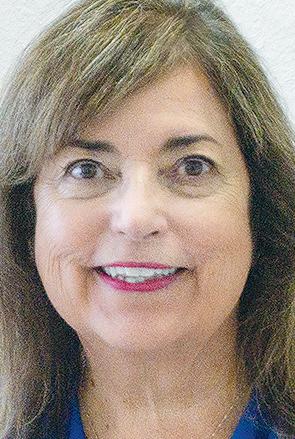

Heiden Homes Realty operates offices at 735 Rood Ave. For more information, including properties for sale and rent, call (970) 245-7777 or visit the website located at www.heidenhomes.com
SHARE YOUR NEWS
The Business Times welcomes submissions for free publication in Business People and the Almanac calendar of events. Submissions may be emailed to phil@thebusinesstimes.com or submitted online at the website at www.thebusinesstimes.com.
n KIWANIS CLUB OF GRAND JUNCTION AWARDS CITIZEN, EDUCATOR OF THE YEAR
Charles Latshaw and Breanne Garcia were honored by the Kiwanis Club of Grand Junction.
Latshaw, music director of the Grand Junction Symphony, was named 2024 Citizen of the Year. Garcia, a special education specialist with Mesa County School District 51, was named 2024 Educator of the Year.
Latshaw was recognized in part for his efforts to present orchestral and symphonic music to children, including third to fifth grade students in District 51. Latshaw also created the Grand Junction Symphony Academy to provide one-on-one lessons to students who could otherwise not afford them.
Garcia has worked in special education more than 15 years, assisting elementary school students with specialized instruction in math, reading and social emotional learning.
Kiwanis is a worldwide organization of volunteers dedicated to helping children. The Kiwanis Club of Grand Junction meets at noon Thursdays at Warehouse 25/Sixty-Five, located at 2565 American Way. For more information, visit https://Kiwanis-gj.org.
n ECONOMIC DEVELOPMENT OFFICE NAMES DIRECTOR OF INNOVATION ECOSYSTEMS
Laura Rodriguez has been named director of innovation ecosystems for the Colorado Office of Economic Development and International Trade.
In addition to her responsibilities as chief strategy officer, Rodriguez will help cultivate sustainable and inclusive ecosystems and promote Colorado as a business hub.

“I look forward to collaborating with OEDIT and the startup community to implement projects that will raise awareness of our proven programs and increase investment to Colorado’s businesses,” Rodriguez said.
Eve Lieberman, executive director of OEDIT, praised the selection of Rodriguez for the new role. “Laura’s leadership will be critical to ensuring Colorado remains a leading destination for innovation and entrepreneurship and accelerates our national and global competitiveness.”
In her addition to her work with OEDIT, Rodriguez served as a vice president at the Metro Denver Economic Development Corp. She holds a bachelor’s degree from the University of Colorado at Boulder and master’s degree from John Hopkins University.
June 20
n Fruita Area Chamber of Commerce Women in Business event at Jet Boat Colorado, 4 to 6:30 p.m., 2237 Roan Creek Road, De Beque. Admission $30 for members, $50 for others. 858-3894 or https://fruitachamber.org
June 21
n Coffee Club free networking meeting and presentation by Tony Lee, Mesa County veterans service officer, 9 to 10 a.m., FWorks, 325 E. Aspen Ave., Fruita. https://fruitachamber.org or 858-3894
June 24
n Grand Junction Area Chamber of Commerce membership luncheon, noon to 1:30 p.m., Colorado Mesa University. Admission $25 for chamber members, $35 for others. https://gjchamber.org or 242-3214
June 25
n Fruita Area Chamber of Commerce state of the community breakfast, 8:30 to 10:30 a.m., Absolute Prestige Ranch, 1351 Q Road, Loma. Admission $20 for chamber members, $35 for others. 858-3894 or https://fruitachamber.org
n Small business exporting roundtable, 9 to 10 a.m., Business Incubator Center, 2591 Legacy Way, Grand Junction. 243-5242 or https://gjincubator.org
n Grand Junction Area Chamber of Commerce business after hours, 5:30 to 7 p.m., Habitat for Humanity, 2936 North Ave. Admission $10 in advance, $12 at the door. 242-3214 or https://gjchamber.org
June 27
n Bookkeeping boot camp, 9 a.m. to 2 p.m., Business Incubator Center. Admission $75. 243-5242 or https://gjincubator.org
n Welcome Thursday Friends networking luncheon, noon to 1 p.m., Fiesta Guadalajara, 103 U.S. Highway 50, Fruita. 858-3894 or https://fruitachamber.org
n Young Professionals Network of Mesa County business after hours, 5:30 to 7 p.m., Redlands Mesa Golf Course driving range, 2325 W. Ridges Blvd., Grand Junction. www.ypnmc.org
Upcoming
n Fruita Area Chamber of Commerce Women in Business Caffeinated Connections, 9 to 10 a.m. July 11, Bestslope Coffee, 129 N. Peach St, Fruita. Chamber members attend at no charge. Others pay $10. 858-3894 or https://fruitachamber.org
n Grand Valley BizMix event for members of the Fruita, Grand Junction, Palisade and Western Colorado Latino chambers of commerce and Young Professionals Network of Mesa County, 5:30 to 7 p.m. July 16, Smokin’ Oak Wood-Fired Pizza & Taproom, 3225 Interstate 70 Business Loop, Clifton. Admission $10 https://gjchamber.org or 242-3214
n Western Colorado Human Resource Association monthly membership meeting and program on workforce readiness, 11:30 a.m. to 1 p.m. July 17, Mesa County Workforce Center, 512 29 1/2 Road, Grand Junction. https://wchra.org F

F
Page 26 The Business Times June 20-July 10, 2024
Zebulon Miracle
Toni Heiden
Anthony Heiden
Laura Rodriguez



June 20-July 10, 2024 The Business Times Page 27

Page 28 The Business Times June 20-July 10, 2024


























































 Craig Hall
Craig Hall
Craig Hall
Craig Hall






















